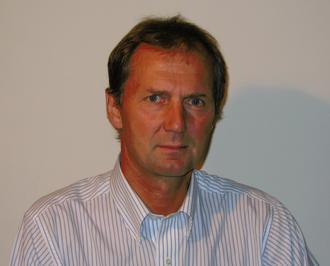Jeffrey Almond: 2013 winner of the Unilever Colworth Prize

We got in touch with former Unilever Colworth Prize winner, Professor Jeffrey Almond, University of Oxford and University of Reading, to ask a few questions about his award and how this has impacted his research since.
I have worked on vaccines for many years. In academia in the 1980s, I collaborated with Phil Minor (who was awarded the Unilever Colworth Prize in 1991) and his colleagues at the National Institute for Biological Standards and Control (NBISC). At NIBSC, we worked out the genetic and molecular basis of attenuation of the polio strains used in Sabin’s oral polio vaccine (OPV). Our understanding of poliovirus vaccine reversion to virulence – and the identification of vaccine-derived polio strains – has underpinned global monitoring of these viruses as we have moved towards global eradication of polio.
At the time of my Prize Lecture, I was employed as Vice President and Global Head of Research at Sanofi Pasteur, then the largest manufacturer of human vaccines in the world, where I was responsible for a large number of early stage vaccine projects including those against Pseudomonas auriginosa, periodontal disease, Chlamydia trachomatis, Respiratory Syncytial Virus (RSV) and Rhinoviruses. I also shared responsibility for a series of clinical or late-stage projects on Dengue fever, improved influenza vaccines, Clostridium difficile and improved infant combination vaccines. In addition to this, my team and I were also responsible for assessing and developing new technologies for designing, manufacturing and delivering vaccines, and for initiating collaborations with outstanding academics and leading biotech companies.
How has your work developed since winning your Prize?
I retired from my full-time position as Head of Research in 2014 and since then I have developed a portfolio of scientific advisory roles in both the public and private sectors. Most of these concern infectious diseases of humans or animals, and vaccine design and development.
What was the highlight of delivering your lecture?
Showcasing our work and re-establishing connections with many old colleagues in microbiology in the UK after living in France for 15 years was important. Feedback and discussions were valuable as always.
Why do you believe it is important to nominate colleagues for the Society’s Prize Lectures?
Showcasing excellent work and scientific advances is absolutely necessary and giving credit to individual effort and success is an important part of this.
How did you find your overall experience from being nominated for the award to giving your talk?
Friendly, welcoming, fulfilling and an honour.
Nominations for the 2022 Prize Lectures and the 2023 Prize Medal lecture are now welcomed
The Microbiology Society supports Equality and Diversity and asks that those making nominations consider the entire talent pool available.
To nominate someone for a Prize Lecture, please visit the relevant Prize Lecture page to find out more about its remit, judging criteria and past winners of the Prize. You will also be able to download the nomination form on this page. We have provided example nomination forms to demonstrate the level of detail required for nominations.
Complete nominations along with any supporting documentation should be submitted to [email protected] by no later than 27 May 2021.
If you have any queries, would like to be put in touch with a second nominator, or would like to talk through your ideas for a nomination, please contact the Microbiology Society Prizes team.
